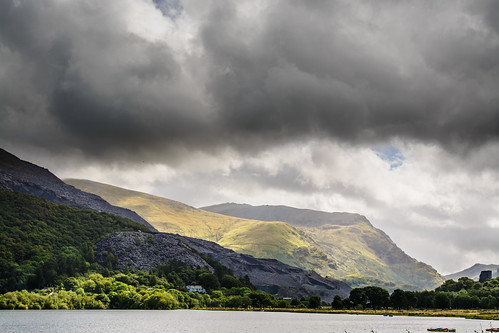Yesterday I took part in an act of civil disobedience, helping to close off one of five central London bridges as part of Extinction Rebellion. The campaign takes the view of a couple of the books discussed recently here on CT, that at some point the ‘get out of jail free’ clause on principled political disobedience rises to the level of positive moral obligation; the urgency and devastation of climate change are so severe, and normal politics so unable to conceive of what’s needed, let alone do much or any of it, that blocking streets and other forms of nonviolent escalation are now essential.
On one level, it was just the same as every other protest; make a sign for the dog, stuff my pockets with poo-bags, and be sure not to drink too much beforehand. It was clear once I got onto the bridge – which was already blocked to traffic – that if you wanted to risk arrest you should sit in the road; otherwise you could just show support for those being arrested. There were the usual speeches, singing, drumming, chatting, getting Milo to pose for pictures with people, and even a woman playing the cello. It was pretty white, though with a strong Swampy contingent, a couple of whom had several arrests behind them and were looking at a custodial sentence if they were arrested again.
I stayed on the footpath, cheering for those arrested. But I felt uneasy about it and still do. And uneasy that I feel so anxious about rule-breaking – to the point where, when I was going home, I made sure to thank the police. (For some reason, the bridge I was on had six times the arrests of the next most numerous one.) It’s nice on one level, because it was a well-policed event with no aggro I could discern. But it’s also such a middle class white lady protestor thing to want to do, standing around with my cute dog and his cute sign, wanting everyone to be happy, especially in a country where policing is unequal and often vicious. Even this morning I have that emotional hangover from when you’ve gone a bit far in a political argument and, while winning, have squashed the other person a bit too much.
The reasons I went to do mild civil disobedience were what I’d read here from Chris et al on positive obligation, and also having noticed a week or two ago that a senior Church of England churchman was involved. Reading that back, I see I’ve become such an upstanding churchlady goody two shoes that I want to slap myself! Then I think, well, nothing political or structural gets done without massive, unlikely coalitions. So I just need to get over the fact that now, yes, I’m a mid-forties person who’s now on the distinctly establishment end of the rainbow. It’s a good thing – if galling, I’m sure – that the complacents like me are finally starting to get the message, but God knows we don’t deserve any medals for finally turning up.
There were people there who basically live on fracking protest sites or who have been activists for decades. It occurred to me this morning (yes, in church and no, I don’t know why I’m so sheepish about this, either) that those protestors are like the disciples who heard the New Testament firsthand, took it at face value and then did the only thing they could – tore up their lives to go out and re-make the world in the image of what they believed to be true. Success or failure didn’t matter. If you believed it was what it said it was and followed the logic of it through, there was no alternative but to spend the rest of your life proselytising in a hair-shirt, penniless and relying on the hospitality of others.
The same is true for climate change, obviously. Its severity and urgency and the sheer evil of how we are sliding into it demand that we tear our lives up to try to stop or at least slow it down. But in the same way that every religion gets softened because doing what it actually says on the tin is clearly unreasonable (i.e. incompatible with living comfortably), on climate change we’re still acting as if incremental change is a reasonable response to imminent catastrophe. (Or maybe the rationalisation is the implicit belief that the catastrophe will mostly happen to other people?)
The difference between the radicalisms called for by Christianity and climate change is this; the second coming is highly unlikely (at least), but climate catastrophe is both imminent and already here. We know it is coming, but we are still waiting to be forced by immediate circumstance into a radicalism we feel in our bones is essential right now. When the disaster finally comes to us, some part or number of us will finally embrace it with grateful relief. But till then, many are screaming into the void. Stopping a bit of traffic is the very, very, very least we can do. And no, it is not and will never have been enough.
A friend I called into on the way couldn’t come till later, and by then the bridge was blocked off to other protestors. She stood at the barricade explaining to people who wanted to cross Lambeth Bridge what the demonstration was about and asking them if, now they knew, they felt it was justified. Most of them did, once they thought about it. Maybe they won’t join any future ones, and probably it will be too late, but I think my friend certainly did more for the cause than I did, yesterday.
I will say, though, that by far the best bit was when I was walking along the Albert Embankment and a young man in a suit, driving a very large Mercedes which had just been turned away from the blocked bridge, was screaming out his opened window. Some tourists turned to see what he was about and he roared at them to “Shower, you cunts!”. Result.







 I love public art. I love stumbling upon sculptures while walking around in a city. I only got to spend about 36 hours in Turku, Finland and most of it was rather dark (and/or foggy) plus I was inside for my talk and meals for a good chunk of the time, but I still got to experience some surprises. Pictured to the right is Posankka, a cross between a pig and a duck, that its artist
I love public art. I love stumbling upon sculptures while walking around in a city. I only got to spend about 36 hours in Turku, Finland and most of it was rather dark (and/or foggy) plus I was inside for my talk and meals for a good chunk of the time, but I still got to experience some surprises. Pictured to the right is Posankka, a cross between a pig and a duck, that its artist  This was not the creepiest piece I saw in Turku, not to suggest that I usually measure sculptures by the amount of creepiness they elicit. That just happened to come up here a couple of times. The little girl to the left wins that award from me. It reminds me of something, but I can’t put my finger on it and online searches didn’t help. I’m more of a fan of other pieces I saw around town. But not being a fan does not mean I don’t enjoy stumbling upon a piece. As I noted, I get a kick out of being surprised by such works when I explore a city. What’s some of the more unusual public art you’ve seen? I’d love to see examples if you can point to them.
This was not the creepiest piece I saw in Turku, not to suggest that I usually measure sculptures by the amount of creepiness they elicit. That just happened to come up here a couple of times. The little girl to the left wins that award from me. It reminds me of something, but I can’t put my finger on it and online searches didn’t help. I’m more of a fan of other pieces I saw around town. But not being a fan does not mean I don’t enjoy stumbling upon a piece. As I noted, I get a kick out of being surprised by such works when I explore a city. What’s some of the more unusual public art you’ve seen? I’d love to see examples if you can point to them.

